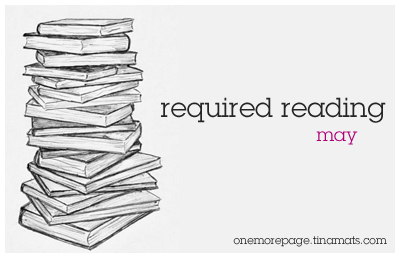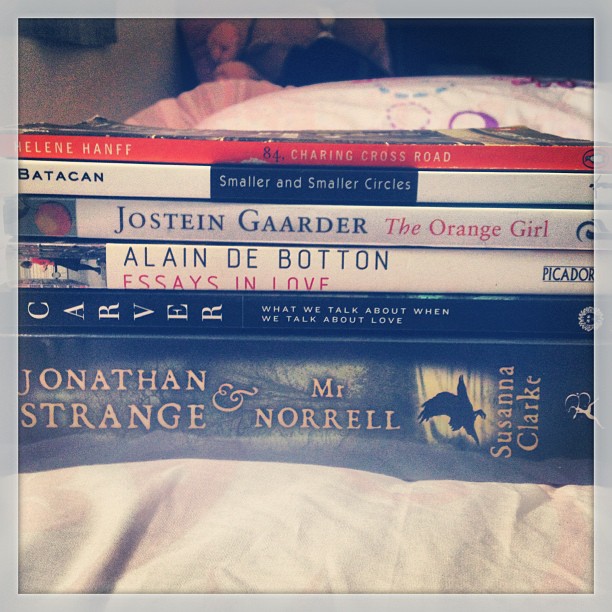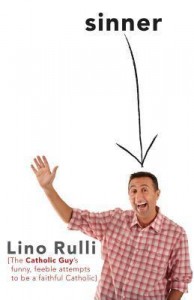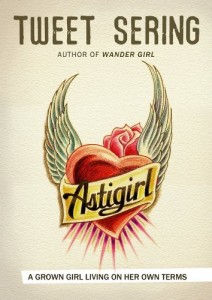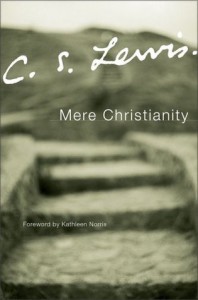 Mere Christianity by C.S. Lewis
Mere Christianity by C.S. Lewis
Publisher: HarperOne
Number of pages: 227
My copy: paperback, bought from Powerbooks (or was it a birthday gift? I can’t remember)
One of the most popular and beloved introductions to Christian faith ever written, Mere Christianity has sold millions of copies worldwide. The book brings together Lewis’s legendary broadcast talks of the war years, talks in which he set out simply to “explain and defend the belief that has been common to nearly all Christians at all times.” Rejecting the boundaries that divide Christianity’s many denominations, C.S. Lewis provides an unequaled opportunity for believers and nonbelievers alike to hear a powerful, rational case for Christian faith. It is a collection of scintillating brilliance that remains strikingly fresh for the modern reader and at the same time confirms C.S. Lewis’s reputation as one of the leading writers and thinkers of our age.
* * *
This is months overdue and at one point I wonder if I should still write one for this book because I am not sure if I still remember the important points I have noted and underlined (Yes, I underlined parts of this book — the only time I have underlined a book again since school). But then a few friends are discussing The Screwtape Letters online and for a moment there, I thought I already wrote a review for this. Turns out I haven’t yet. Suddenly, I felt like writing one again.
But I don’t think this will be really a review, but more of a reflection of sorts on the book. I’ve wanted to have a copy of Mere Christianity since college, back when I was still very active in my Catholic community, CFC Youth for Christ, and back when I was just discovering The Chronicles of Narnia (I’m a late bloomer). I finally received a copy of this for my birthday from my brother, I think but it languished on my TBR for several reasons: I wanted to read it but I admit that I fell asleep several times when I started it, and then later, I didn’t feel that I was ready for it just yet. I did read some parts of the book back when I was in a low moment when I started working, and this quote remains a favorite until now:
We may, indeed, be sure that perfect chastity — like perfect charity — will not be attained by any merely human efforts. You can ask for God’s help. Even when you have done so, it may seem to you for a long time that no help, or less help than you need is being given. Never mind. After each failure, ask forgiveness, pick yourself up, and try again. Very often what God first helps us towards is not the virtue itself but just this power of always trying again. For however important chastity (or courage, or truthfulness, or any other virtue) may be, this process trains us in habits of the soul which are more important still. It cures our illusions about ourselves and teaches us to depend on God. We learn, on one hand, that we cannot trust ourselves even in our best moments, and, on the other, we need not despair even in our worst for our failures are forgiven. The only fatal thing is to sit down content with anything less than perfection.
The book buddy thread for Mere Christianity was the perfect opportunity to read it again, but alas, I lagged behind terribly for many, many reasons. Sorry, book buddies! ^^; I still finished the book, of course, albeit very, very late, and then I took my own sweet time thinking about how to write about it because I really had no idea where to start — not because I didn’t like it or I liked it too much. It’s just…different.
Here’s what I think about Mere Christianity (and C.S. Lewis’ other non-fiction books, for that matter): they’re not for quick reading. The C.S. Lewis books I’ve read in the past year were always the kind of books that pack a punch and would make you pause several times to reflect on what he said. Another thing is it’s not easy reading, because more often than not, Lewis’ words tend to poke at those parts of us that we hide. That’s one of the reasons why the quote above hit me a lot, because it’s the truth, and based on experience, the truth is never really comfortable at first. On the other hand, books like Mere Christianity offer a lot of wisdom, although I think I wouldn’t have understood if I read it earlier in my faith walk. Perhaps this is why I read this at this time instead of when I got it?
To cut the long story short — I liked Mere Christianity a lot. I expected it from when I first asked for this book. It wasn’t difficult to read as far as writing is concerned, because Lewis approached the topics in a very human manner and I didn’t really sense self-righteousness in any of the chapters. What he said isn’t easy to follow, but they’re actually quite practical and some of them turned out to be things that I already knew, but somehow forgot, or just denied until it was brought out into the light. Like what the introduction in my copy said:Â
The Christianity Lewis espouses is humane, but not easy; it asks us to recognize that the great religious struggle is not fought on a spectacular battleground, but within the ordinary human heart, when every morning we awake and feel the pressures of the day crowding in on us, and we must decide what sort of immortals we wish to be.
In the end, this mere Christianity that Lewis wrote about is still a choice, the free will given to us by God in His infinite love and mercy. It’s a lot to think about. Mere Christianity is book that is meant to be read not just once, just like The Screwtape Letters, because this is the kind of book that hits you differently with every reading, depending on your current situation.
As much as I liked this, though, and as much as I think this offers a lot of practical advice in how to live as a Christian, I must remember that this is still nothing compared to the Bible. This is the kind of book that could easily take over the Bible because it’s really easier to read, and I think it may even end up being some sort of how-to in being a Christian. It’s not. Funny that I would have to quote another book to enforce that point, butThe Ragamuffin Gospel by Brennan Manning sums this final thought up accurately:
The Word we study has to be the Word we pray. My personal experience of the relentless tenderness of God came not from exegetes, theologians, and spiritual writers, but from sitting still in the presence of the living Word and beseeching Him to help me understand with my head and heart His written Word. Sheer scholarship alone cannot reveal to us the gospel of grace. We must never allow the authority of books, institutions, or leaders to replace the authority of knowing Jesus Christ personally and directly. When the religious views of others interpose between us and the primary experience of Jesus as the Christ, we become unconvicted and unpersuasive travel agents handing out brochures to places we have never visited.
Last: I have to admit, one of the perks I got from reading this was finally reading the source of Brooke Fraser’s C.S. Lewis Song, one of my favorite songs ever. :)
I told you this wasn’t a review.
Rating: [rating=4]
Other reviews:
Goodreads
